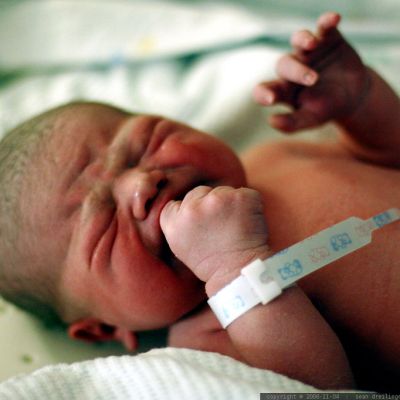Today a troubling story out of my home province of Saskatchewan.
If statements coming out of that province are true, this problem exists in other provinces too.
A woman who is an Indian citizen, referred to as “Jo”, traveled to Canada to further her education.
While in Canada, she gave birth to a beautiful baby boy.
Her baby is a Canadian citizen.
He has a Canadian passport and a Saskatchewan birth certificate.
Jo tried to obtain a health care card for him, but was unsuccessful.
Unfortunately, her baby contracted COVID-19 and developed respiratory problems.
He required medical attention. So, Jo brought him to the emergency room.
Then, she received a bill for his health care services.
Why? Well, that’s a very good question.
The reason being offered is that he is being denied health care because of his mother’s immigration status.
Jo was quoted in the Saskatoon Star Phoenix as stating: “He’s a Canadian, but I feel like he doesn’t have the rights of a Canadian.” “It’s a human right I’m asking for. But they are just neglecting it … what they are doing to us is inhuman[e].”
Apparently, Saskatchewan’s Health Minister says he will look into the issue. He stated that Saskatchewan’s policy is similar to those of other provinces.
He did not fully explain exactly why the immigration status of a mother prevents a Canadian citizen from obtaining a health care card.
Section 3(1)(a) of the Citizenship Act (Canada) states:
3 (1) Subject to this Act, a person is a citizen if
(a) the person was born in Canada after February 14, 1977;
Are provincial governments refusing health care based on another provision in the Citizenship Act?
Now I’m not an Immigration lawyer, but I would sure like to see the provision being relied upon. The validity of any such provision is certainly open to question.
Section 15 of the Canadian Charter of Rights and Freedoms states:
15 (1) Every individual is equal before and under the law and has the right to the equal protection and equal benefit of the law without discrimination and, in particular, without discrimination based on race, national or ethnic origin, colour, religion, sex, age or mental or physical disability.
Does denying a service, such as health care, to a child born in Canada in these circumstances violate s. 15 of the Charter?
Provincial human rights legislation also prohibit discrimination in services made customarily available to the public on the basis of “family status” and other prohibited grounds. In B.C., that’s section 8 of the B.C. Human Rights Code. In Saskatchewan, it’s section 12 of the Saskatchewan Human Rights Code, 2018.
Additional grounds in B.C. include race, colour, ancestry, place of origin, family status and age. In Saskatchewan they include age, colour, ancestry, nationality, place of origin and race or perceived race.
The position being taken by the Saskatchewan government, and apparently other provincial governments, may constitute discrimination on the basis of family status.
Obscure provisions, oddly enough, in human rights legislation might be the source of the government’s position, but if so it’s an odd interpretation.
If governments across Canada attempt to justify this practice, let them produce the relevant provisions and clearly articulate on their justification.
I’ve previously written about an obvious step that provincial governments could be take if they wish to reign in health care spending.
For now, they should probably issue the little guy his health care card. And apologize to Jo.
This is a modified version of an article appearing in online publications including the Kelowna Capital News. This article is for educational purposes only, and provides very general thoughts and general information, not legal advice. By viewing it, you agree that there is no lawyer-client relationship between you and the website publisher. Nothing here can be used as a substitute for competent legal advice from a practicing lawyer in your province with experience in dealing with the specific circumstances of your situation. We may be reached through our website at inspirelaw.ca.
